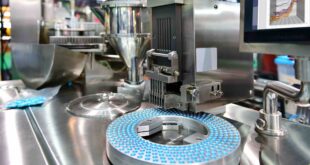From Brexit and the Chinese import ban to the recent demonisation of plastics by media and politicians, the PDM 2018 conference programme will tackle the most challenging issues facing the industry today.
Taking place at the Telford International Centre on 19 and 20th June 2018, the free-to-attend PDM conference will feature expert speakers from the British Plastics Federation (BPF), CEEMET (the European Employers’ Association) and Made in Britain, and include a panel discussion on how the industry can improve plastic’s image.
Philip Law, Director General, BPF will provide an opening address on where the plastics industry is headed.
Mike Baxter, Director of External Affairs, BPI will then present a session on the Chinese ban on plastic waste exports and the implications for the British recycling industry.
He will be followed by Kinza Sutton, Marketing Manager, Plastipak who will explore why plastic has become ‘enemy number one’ looking at how myths and negativity being perpetuated by the media and politicians are affecting public opinion. Her presentation will remind delegates of the positive role plastic plays in our everyday lives, and call for a joined-up approach across the industry to redress the balance.
By way of example, the BPF recently issued a statement in a response to recent government announcements on plastic waste. It said: “We are very disturbed that the tone of language used does not recognise the important benefits that the plastics industry brings to the UK, including 170,000 jobs.
“Plastics themselves save energy. They are low carbon materials, crucial in the fight against climate change. Their light weight and durability cuts fuel consumption in vehicles and aircraft and reduces pollution. They provide protection for products and prevent food waste.
“By encouraging plastic-free aisles, the government is creating an impression that the use of plastics is inherently wrong.
“Typically, food waste in stores increases by a third without packaging. For example, a wrapped cucumber lasts 14 more days than one that is not. Cutting out plastic packaging for fresh produce will actually harm the environment through increased CO2 emissions because the energy used to produce food is much greater than in the packaging protecting it.”
Matt Barber, event director for the PDM Event says: “We have a really strong line-up of speakers who will not shy away from tackling the difficult issues facing the plastics industry. The conference sessions and panel discussion will provide an important opportunity for the industry to find solutions and set an agenda for action.”
Both upstream and downstream waste management solutions will be discussed during the conference.
The Sustainability sessions on day two will include a presentation on stopping ocean plastics by Professor Ed Kosior, CEO and Head Consultant, Nextek, and another on the use of recycled materials in the future, led by Stephen, Mancey, CEO Europe, Logoplaste.
In the Design and Differentiation sessions, Keith Freeguard, Director, Axion Consulting will explain the importance of “circular thinking” in sustainable product design.
PDM 2018 is the perfect place for plastics and design professionals to network, learn and do business. Industry associations supporting PDM 2018 include: the BPF, plastics recycling organisation RECOUP, the Society of Plastics Engineers (SPE), the Gauge & Toolmakers Association (GTMA) and the Scottish Plastics & Rubber Association.
 Engineer News Network The ultimate online news and information resource for today’s engineer
Engineer News Network The ultimate online news and information resource for today’s engineer


